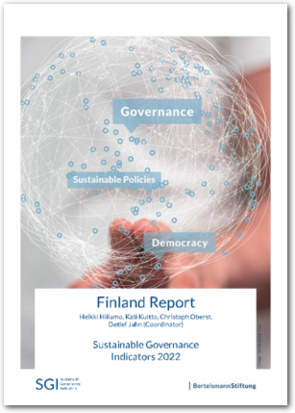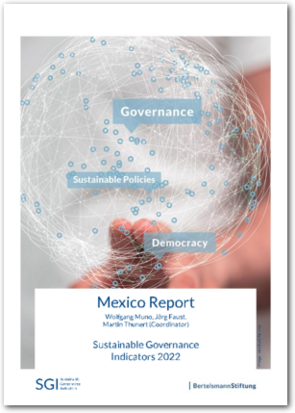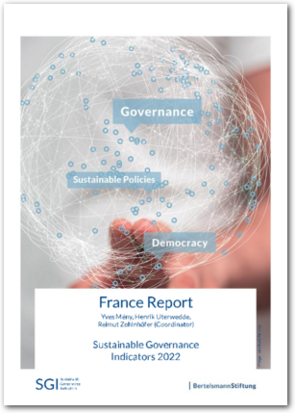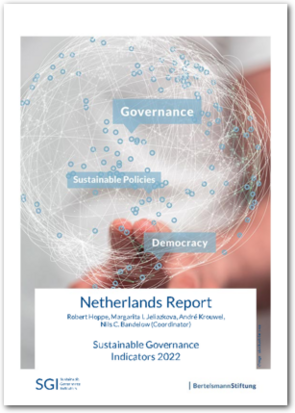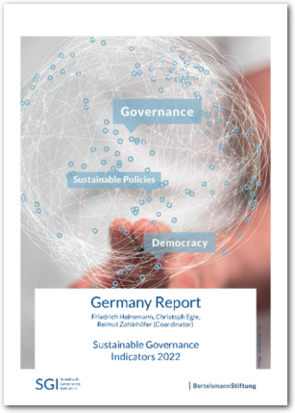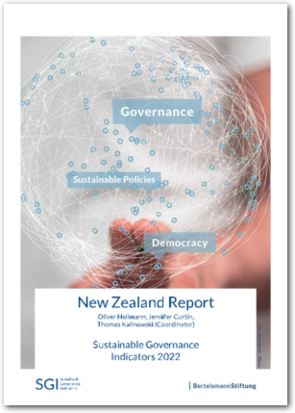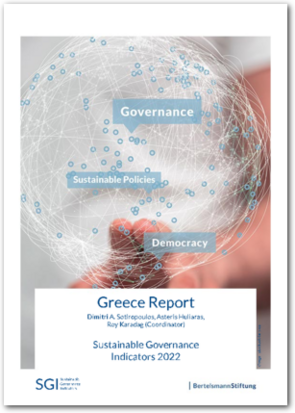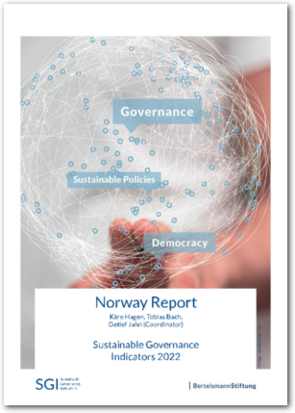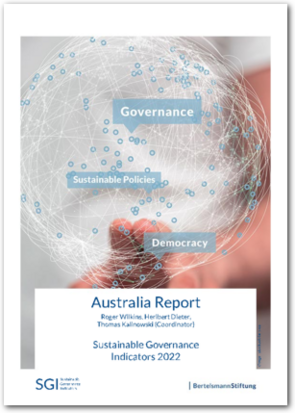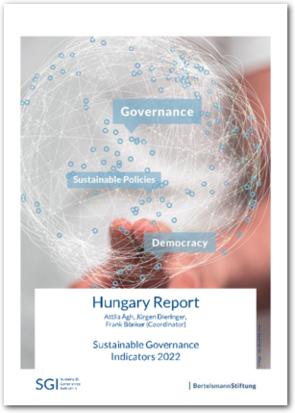Bertelsmann Stiftung (Hrsg.) (PDF)2022
Finland is among the richest and happiest countries in the world. In spite of cuts in public spending over the past few decades, welfare state arrangements are an important cause of citizens’ satisfaction. Given this, Finland may also have been in a better position than many...
weiterlesen
Bertelsmann Stiftung (Hrsg.) (PDF)2022
Considering Mexico’s experience with military and corporatist autocratic rule, the country has made significant progress over the last three decades with regard to electoral competition and its overall regulatory environment, including market-oriented reforms. Economic and...
weiterlesen
Bertelsmann Stiftung (Hrsg.) (PDF)2022
France enjoys solid institutions of governance, and under the Fifth Republic has benefited from the most stable, consensual and efficient period of the past 200 years. Yet the country has struggled to effectively address the challenges associated with Europeanization and...
weiterlesen
Bertelsmann Stiftung (Hrsg.) (PDF)2022
The years 2020-2021 were the last of the Rutte III government that came to power in March 2017. This was an uneasy four-party coalition between center�right parties (the conservative-liberal People’s Party for Freedom and Democracy (VVD) and the largely ideology-free...
weiterlesen
Bertelsmann Stiftung (Hrsg.) (PDF)2022
Throughout the reporting period, the challenges associated with the pandemic were the dominating issue. Overall, the country and its institutions have proved considerably resilient in this crisis. The country benefited from its strong institutions, sound public budgets, and...
weiterlesen
Bertelsmann Stiftung (Hrsg.) (PDF)2022
New Zealand has weathered the global COVID-19 pandemic relatively well, both in terms of public health and economic performance. As of December 2021, the country had only recorded nine deaths per million population – the lowest such figure in the OECD. New Zealand’s economy...
weiterlesen
Bertelsmann Stiftung (Hrsg.) (PDF)2022
Greece’s political and economic environment improved during the period under review, despite the constraints of the COVID-19 pandemic. By 2018, Greece had exited the third Economic Adjustment Program (2015–2018), and by 2019 a new, more predictable and more reform-oriented...
weiterlesen
Bertelsmann Stiftung (Hrsg.) (PDF)2022
As a consensus-driven democracy, blessed with generous natural resources managed in a responsible way, Norway performs well in most international comparisons of governance, quality of life, and in rankings of economic and social conditions. Continuity and pragmatic solutions...
weiterlesen
Bertelsmann Stiftung (Hrsg.) (PDF)2022
Somewhat paradoxically, the COVID-19 pandemic appears to have moderated the political instability that characterized the preceding 12 years, and served to undermine sound policy development and implementation underpinned by a long-term vision. However, the pandemic has also...
weiterlesen
Bertelsmann Stiftung (Hrsg.) (PDF)2022
Hungary has been governed by Prime Minister Viktor Orbán and his Fidesz party since 2010. The gaining of successive two-thirds majorities in the 2010, 2014 and 2018 parliamentary elections has given the government the necessary leeway to push through far-reaching changes and...
weiterlesen
